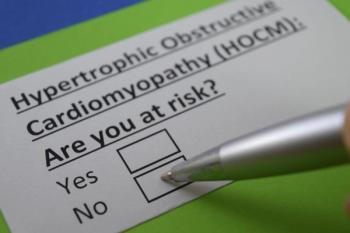
Leqvio Gets Label Update For Earlier Use in Patients with Heart Disease
Recent safety data also allowed four adverse events to be removed from the label.
The FDA has approved a label update for Novartis’ Leqvio (inclisiran) to enable earlier use in patients with elevated LDL-C who have an increased risk of heart disease. This patient population includes those who have comorbidities such as hypertension and diabetes and have not yet had a first cardiovascular event.
The label for Leqvio has also been updated to remove four adverse events since the frequency of these events were the same as the placebo arm after rounding: urinary tract infection, diarrhea, pain in extremity and dyspnea.
The wholesale acquisition cost of Leqvio is $3,331.76 per dose per injection, which is administered twice a year, after two initial doses. A spokesperson for Novartis indicated that most payers require a prior authorization. With an updated label and broader indication, the company anticipate more appropriate patients will have access to Leqvio.
“High LDL-C is one of the most readily modifiable risk factors for heart disease and this label update for Leqvio will help us reach a greater number of patients who struggle with lowering their LDL-C,” Victor Bulto, president of Novartis Innovative Medicines US, said in a press release.
Leqvio was first approved in December 2021 to lower LDL cholesterol in adults with familial hypercholesterolemia (HeFH) or clinical atherosclerotic cardiovascular disease (ASCVD). Patients with HeFH typically have LDL cholesterol levels at least twice as high as normal levels and have an increased risk of cardiovascular events, such as stroke, coronary artery disease, and heart attack. ASCVD refers to cholesterol plaque buildup in arteries, which can lead to life-threatening events, such as heart attack, stroke, and peripheral artery disease.
Leqvio is a small interfering RNA (siRNA) therapy to reduce low-density lipoprotein cholesterol levels via an RNA interference mechanism of action. It works by preventing the production of PCSK9, a target protein in the liver, which increases hepatic uptake of LDL-C. With two doses a year, Leqvio works as a complement to statins. In clinical trials, Leqvio was able to lower LDL-C up to 52% vs. placebo for patients with heart disease or at increased risk of heart disease, who were unable to reach their LDL-C target despite statin therapy.
The label for Leqvio has also been updated to remove four adverse events since the frequency of these events were the same as the placebo arm after rounding: urinary tract infection, diarrhea, pain in extremity and dyspnea. Results from the ORION-3 open-label trial show Leqvio as a complement to statin therapy, provides sustained reductions in LDL-C over four years of treatment. The safety profile was consistent with previous phase 3 trials.
Leqvio is also being studied as part of VictORION, which is one of the largest cardiovascular trial programs with more than 20 trials. Patients are currently being recruited for a
Newsletter
Pharmacy practice is always changing. Stay ahead of the curve with the Drug Topics newsletter and get the latest drug information, industry trends, and patient care tips.























